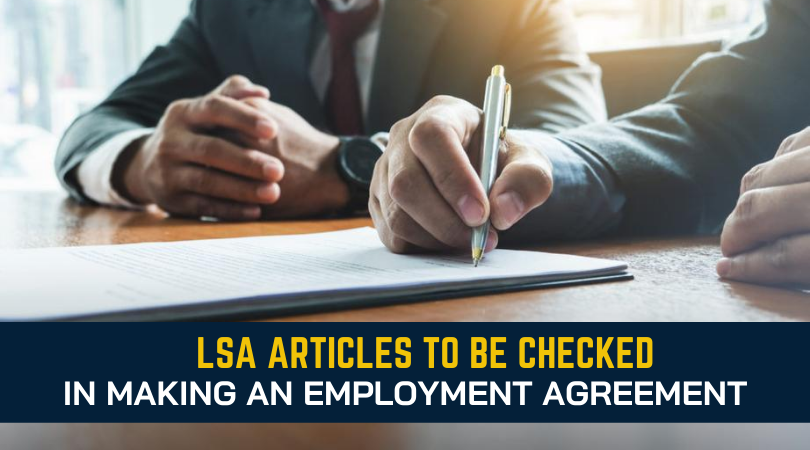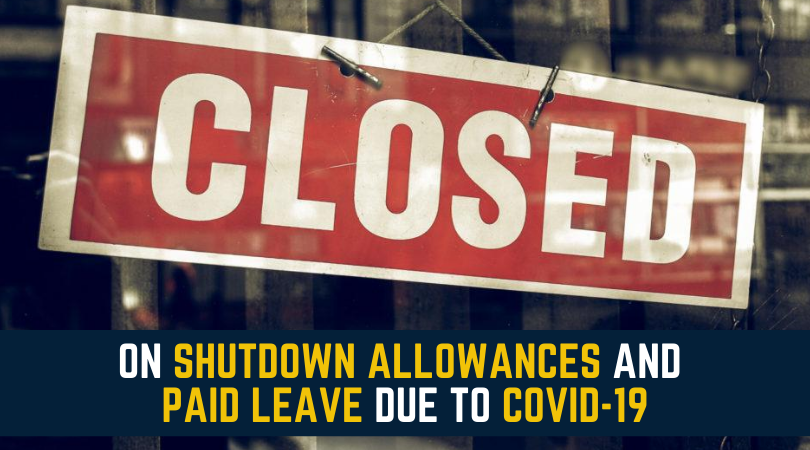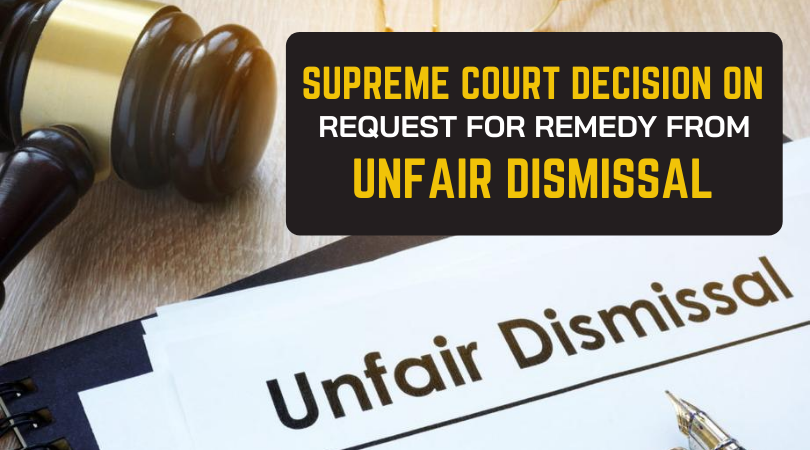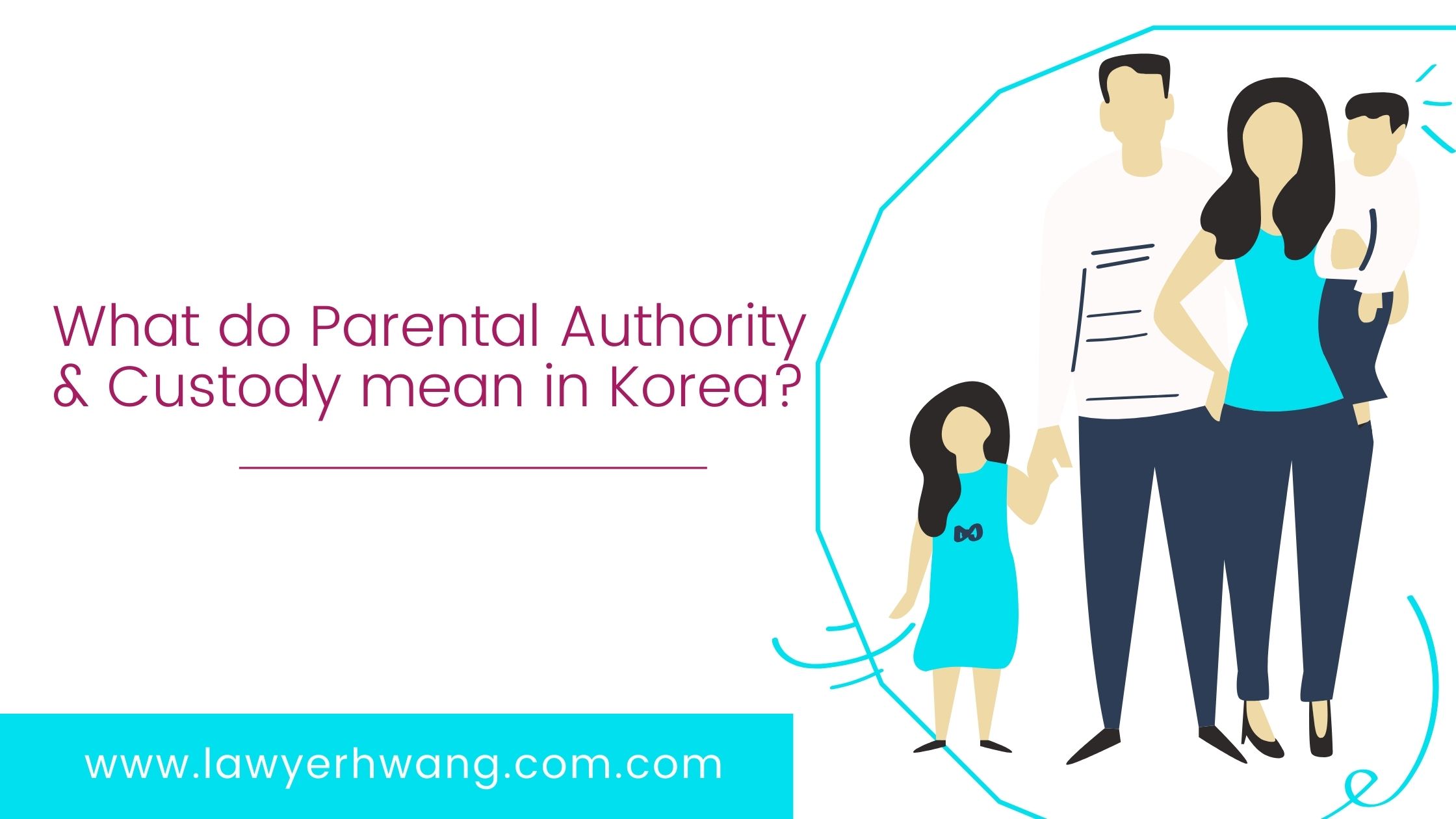[Supreme Court Decision – Criminal Law] – On Intent of Defamation
February 11, 2020An immediate appeal for the ruling of furnishing security for the costs of lawsuit accepted
February 14, 2020Labor Standards Act (hereinafter referred to as the “Act”) aims to guarantee the minimum standards for employment and terms and conditions of employment that do not comply the standards stated in the Act shall be null and void to that extent. I’d like to introduce several Articles of the Act that shall be checked in entering into an employment agreement.
(For further legal inquiries, please contact me at https://lawyerhwang.com/consultation/ or [email protected]).
First, as I mentioned above, a term or condition shall be null and void to that extent if it does not confirm the standards prescribed by the Act. Please refer to the relevant article as below;
Article 15 (Labor Contracts in Violation of This Act)
(1) A labor contract which has established terms and conditions of employment not in compliance with the standards prescribed by this Act shall be null and void to that extent.
(2) Those parts made null and void in accordance with paragraph (1) shall be governed by the standards prescribed by this Act.
Second, major terms and conditions on employment shall be clarified. The relevant article is as follows;
Article 17 (Clear Statement of Terms and Conditions of Employment)
(1) An employer shall state the following matters clearly. The same shall also apply to any alteration of the following matters after entering into a labor contract: <Amended by Act No. 10319, May 25, 2010>
1. Wages;
2. Contractual work hours;
3. Holidays under Article 55;
4. Annual paid leaves under Article 60;
5. Other terms and conditions of employment prescribed by Presidential Decree.
(2) An employer shall deliver the written statement specifying constituent items, calculation methods and payment methods of wages with respect to the wages under paragraph (1) 1 and the matters prescribed in subparagraphs 2 through 4 to employees: Provided, That where the matters under the main sentence is modified due to reasons prescribed by Presidential Decree, such as changes, etc. of collective agreements or rules of employment, such matters shall be delivered to the relevant employees at their request. <Newly Inserted by Act No. 10319, May 25, 2010>
Third, it is not legal to prescribe the terms and conditions to predetermine penalty in case an employee breaches the contract. Please refer to the following article.
Article 20 (Prohibition against Predetermination of Penalty for Breach of Contracts)
An employer shall not enter into any contract in which a penalty or indemnity for possible damages caused by the breach of a labor contract is predetermined.
Fourth, as the wage is considered to be closely related to one’s living standards, so the wage shall not be offset. The relevant article is as below;
Article 21 (Prohibition of Offsetting Wages with Advances)
An employer shall not offset wages with an advance or other credits given in advance on the condition that an employee offers work.
Fifth, it is necessary to check out if there is recess during working hours. Please refer to the following article.
Article 54 (Recess)
(1) An employer shall allow employees a recess of not less than thirty minutes in cases of working for four hours, or a recess of not less than one hour in cases of working for eight hours, during work hours.
(2) Recess hours may be freely used by employees.
Sixth, the article on holidays shall be also checked when making an employment agreement. Please note that the first paragraph of the following article shall be applied to all the workplaces but other paragraphs of the article shall be applied only to the workplaces having the workers of which number is not less than five.
Article 55 (Holidays)
(1) An employer shall guarantee to employees at least one paid holiday per week on the average. <Amended by Act No. 15513, Mar. 20, 2018>
(2) An employer shall guarantee to employees paid holidays as prescribed by Presidential Decree: Provided, That where he/she makes a written agreement with the labor representative, such paid holidays may be substituted with particular working days. <Newly Inserted by Act No. 15513, Mar. 20, 2018>
[Enforcement Date] The amended provisions of Article 55 (2) shall enter into force on the following dates:
1. Business or workplaces regularly employing at least 300 employees, public institutions under Article 4 of the Act on the Management of Public Institutions, local government-invested public corporations or local public agencies under Article 49 or 76 of the Local Public Enterprises Act, institutions or organizations in or to which the State, a local government or a government-invested institution makes an investment of at least 1/2 their capital or a contribution of at least 1/2 of their endowment, institutions or organizations in or to which the abovementioned institutions or organizations make an investment of at least 1/2 of their capital or a contribution of at least 1/2 of their endowment, and institutions of the State or local governments: January 1, 2020;
2. Business or workplaces regularly employing between 30 and less than 300 employees: January 1, 2021;
3. Business or workplaces regularly employing between 5 and less than 30 employees: January 1, 2022.
Seventh, the articles on annual paid leave are applied to the workplace of which workers are not less than five. If your workplace has more than four workers, please check out the terms and conditions on annual paid leave. Please refer to the following articles;
Article 60 (Annual Paid Leave)
(1) Every employer shall grant any employee who has worked not less than 80 percent of one year a paid leave of 15 days. <Amended by Act No. 11270, Feb. 1, 2012>
(2) Every employer shall grant any employee who has continuously worked for less than one year or who has worked less than 80 percentage of one year one paid-leave day for each month during which he/she has continuously worked. <Amended by Act No. 11270, Feb. 1, 2012>
(3) Deleted. <by Act No. 15108, Nov. 28, 2017>
(4) Every employer shall grant any employee who has continuously worked for not less than three years the paid-leave days that are calculated by adding one day for every two continuously working years not including the first one year to the 15 paid-leave days referred to in paragraph (1). In this case, the total number of paid-leave days, including the additional paid-leave days, shall not exceed 25 days.
(5) Every employer shall grant the paid leave referred to in paragraphs (1) through (4) at the time when an employee files a claim therefor, and pay the employee an ordinary wage or an average wage during the period of paid leave as prescribed by the rules of employment, etc.: Provided, That in the event that granting the employee a paid leave at the time when such employee wants to take the paid leave greatly impedes the business operation, the relevant employer may change the time of the paid leave.
(6) In applying paragraphs (1) and (2), any of the following periods shall be deemed the period of attendance at work: <Amended by Act No. 11270, Feb. 1, 2012; Act No. 15108, Nov. 28, 2017>
1. Period during which an employee takes time off due to any injury or sickness arising out of duty;
2. Period during which a woman in pregnancy takes time off due to the leave under the provisions of Article 74 (1) through (3);
3. Period during which an employee takes time off on child-care leave under Article 19 (1) of the Equal Employment Opportunity and Work-Family Balance Assistance Act.
(7) The paid leave referred to in paragraphs (1) through (4) shall, if it is not taken for one year, be terminated by time limitation: Provided, That the same shall not apply where the paid leave is not taken for reasons attributable to the employer.
Article 61 (Measures to Urge Employees to Take Annual Paid Leave)
Where any employee’s paid leave is terminated by time limitation pursuant to the main sentence of Article 60 (7) because the employee fails to take his/her paid leave although the relevant employer has taken the measures falling under each of the following subparagraphs to urge employees to take their respective annual leave pursuant to Article 60 (1) and (4), the relevant employer is not liable to indemnify the employee for his/her failure to take the paid leave, and the employee’s failure to take the paid leave shall be deemed not to fall under the reasons attributable to the employer provided for in the proviso to Article 60 (7): <Amended by Act No. 11270, Feb. 1, 2012; Act No. 15108, Nov. 28, 2017>
1. Any employer shall notify in writing every employee of the number of days of his/her paid leave that has not been taken, and shall urge every employee to notify the employer of a period he/she is planning for the paid leave after determining on such period within ten days as, at the six months before the period under the main sentence of Article 60 (7) expires;
2. Notwithstanding the urge referred to in subparagraph 1, if the employee fails to notify the employer of a period during which he/she is planning to take all of part of his/her remaining paid leave within ten days from the date he/she is urged to take his/her paid leave, the an employer shall notify in writing the employee after setting a period for his/her paid leave, by not later than two months before the period under the main sentence of Article 60 (7) expires.
Article 62 (Substitution of Paid Leave)
An employer may, by a written agreement with the labor representative, get employees to take a paid leave on a particular working day, in substitution of an annual paid leave provided for in Article 60.
Article 63 (Exclusion from Application)
The provisions pertaining to work hours, recess, and holidays referred to in this Chapter and Chapter V shall not apply to an employee who falls under any one of the following subparagraphs: <Amended by Act No. 10339, Jun. 4, 2010>
1. An employee engaged in cultivation or reclamation of land, seeding, cultivation, or collection of plants, or other agricultural and forestry work;
2. An employee engaged in breeding of animals, collection or catching of marine animals and plants, cultivation of marine products, or other cattle breeding, sericulture and fishery business;
3. An employee engaged in surveillance or intermittent work, whose employer has obtained the approval of the Minister of Employment and Labor;
4. An employee engaged in such business as prescribed by Presidential Decree.
Related posts
Blog Articles
Contact Information
201, 160, Seochojungang-ro, Seocho-gu, Seoul, Republic of korea.
Phone: +82-2-535-1235
Mobile: 010 5349 1235
Fax: +82-2-536-1236
Email: [email protected]




































![[Supreme Court Decision – Criminal Law] – On Intent of Defamation](https://lawyerhwang.com/wp-content/uploads/2020/03/Supreme-Court-Decision-–-Criminal-Law-–-On-Intent-of-Defamation.png)
![[Supreme Court Decision – Criminal Law] – On Uploading a “Torrent File” of Obscene Videos](https://lawyerhwang.com/wp-content/uploads/2020/03/Supreme-Court-Decision-–-Criminal-Law-On-Uploading-a-“Torrent-File”-of-Obscene-Videos.png)






























